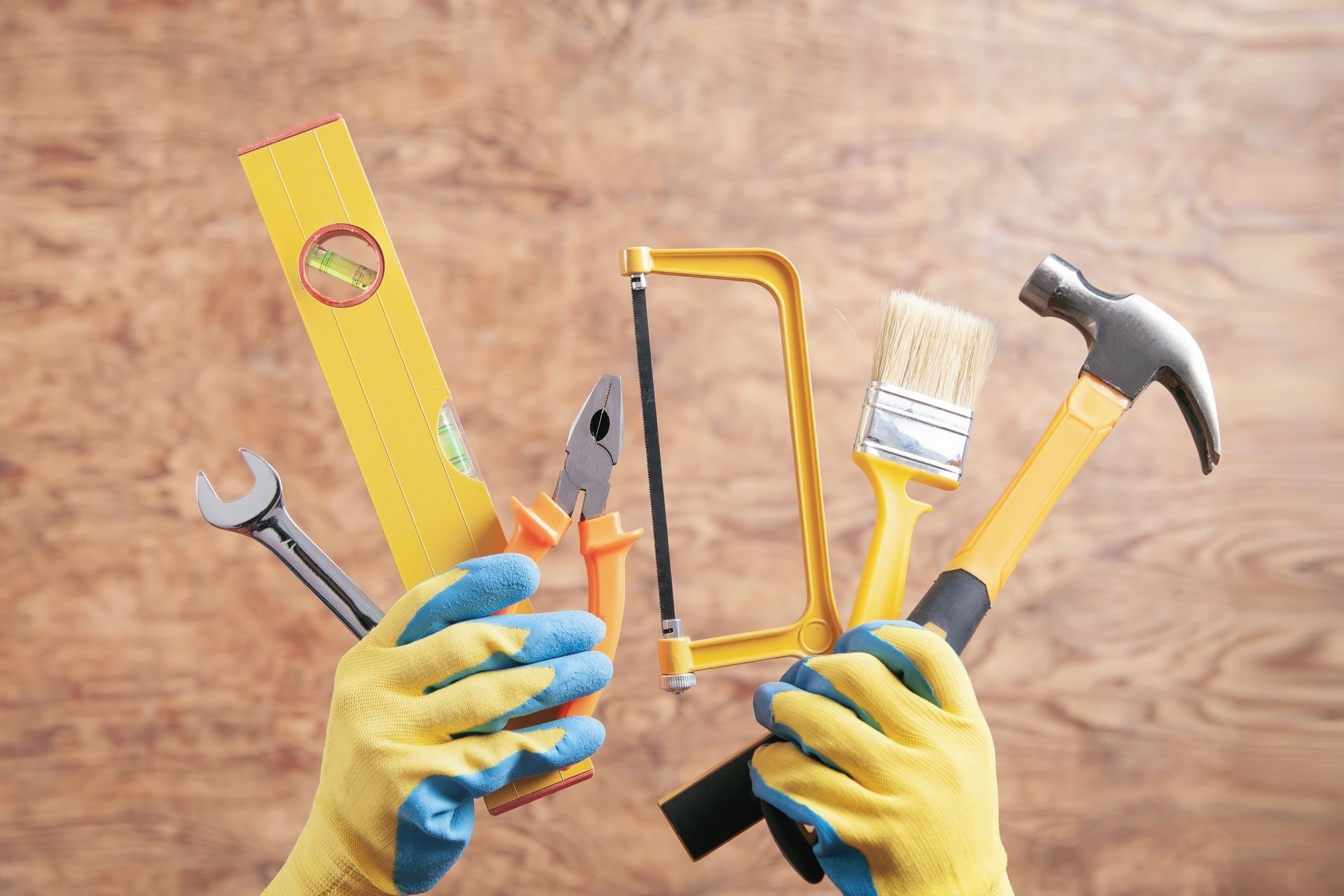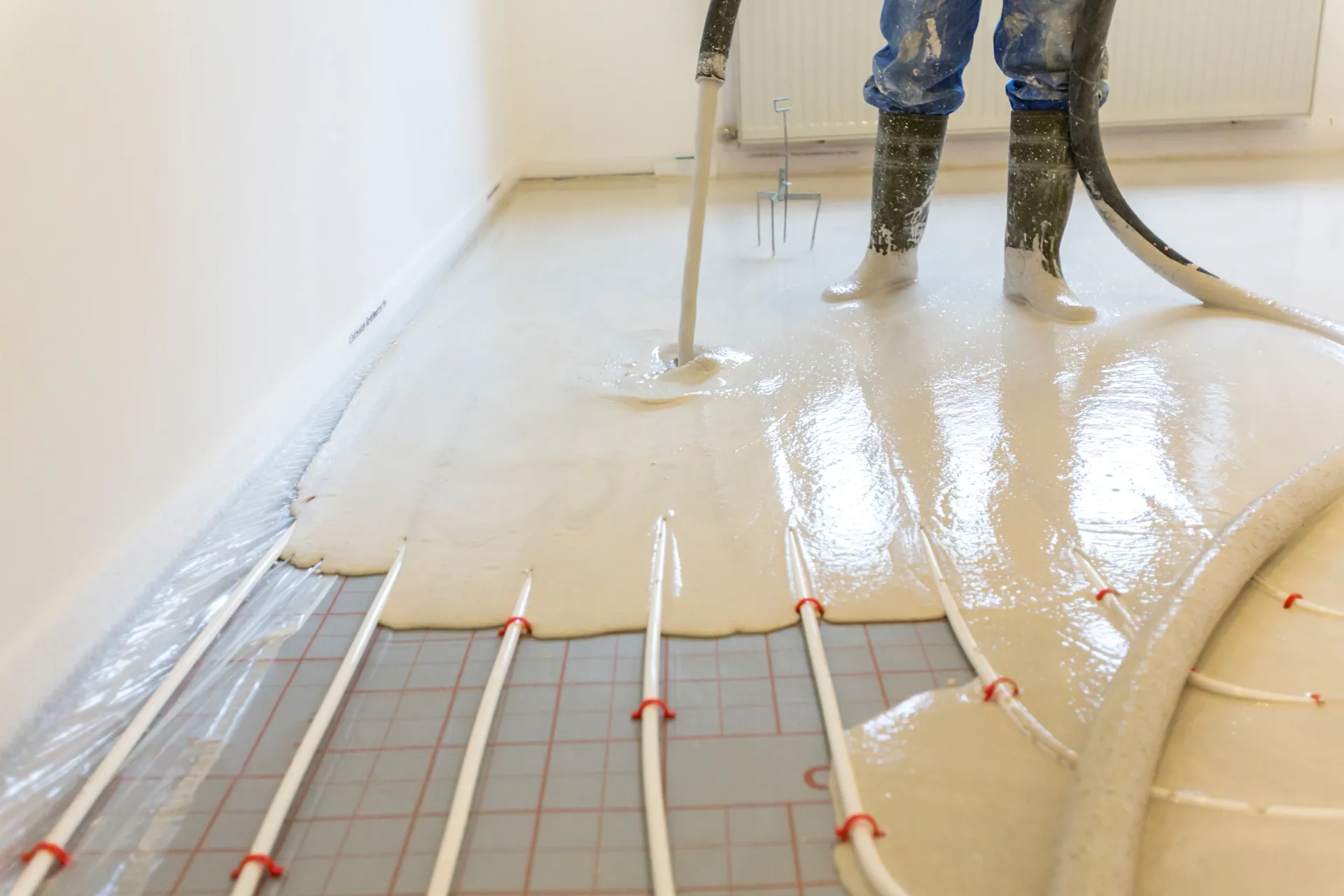Navigating Handyman License Requirements: A Comprehensive Guide

In the dynamic world of home improvement and repair, finding a capable and reliable handyman is often the key to maintaining and enhancing your living space. From fixing leaky faucets to remodeling kitchens, a skilled handyman can save you time, money, and stress by tackling a wide array of household tasks.
However, before entrusting your home to just any handyman, it's crucial to understand the licensing requirements in your area to ensure you're working with a qualified professional. In this comprehensive guide, we'll dive deeper into everything you need to know about navigating handyman license requirements.
Understanding Handyman Licensing
The regulations surrounding handyman licensing can vary significantly depending on your geographical location. While certain jurisdictions may not mandate a specific license for home repair and remodeling services, others impose strict rules to safeguard consumers and uphold standards of quality workmanship.
Familiarizing yourself with these regulations is crucial to avoid potential legal complications and ensure that the local handymen you hire for restorations, home maintenance, and other projects possess the necessary qualifications.
By understanding the licensing requirements in your area, you can make informed decisions when selecting a handyman, thereby safeguarding your investment and ensuring satisfactory results for your home improvement needs.
Types of Handyman Licenses
In regions where handyman licensing is required or available, there are typically several types of licenses tailored to different scopes of work and specialties within the industry. These licenses may include:
1. General Handyman License
This type of license allows individuals to perform a wide range of home repair, maintenance, and remodeling tasks. Holders of a general handyman license may be authorized to undertake various projects, including plumbing repairs, electrical work, carpentry, painting, and other common household tasks.
2. Specialized Licenses
In addition to a general handyman license, some jurisdictions may offer specialized licenses for specific trades or areas of expertise within the home improvement industry. For example, there may be separate licenses available for plumbers, electricians, HVAC technicians, and other specialized trades. These specialized licenses typically require additional training, certification, or experience in the specific area of expertise.
3. Business License
In addition to individual licenses, handymen operating as independent contractors or business owners may also need to obtain a business license to legally operate their home repair or remodeling business. A business license ensures that the handyman's business complies with local regulations and tax requirements and may be necessary for obtaining insurance and other business-related permits.
4. Contractor's License
In some jurisdictions, handymen may be required to obtain a contractor's license if they plan to undertake larger or more complex home improvement projects. A contractor's license typically involves meeting additional requirements related to experience, financial responsibility, and knowledge of building codes and regulations. Holders of a contractor's license may be authorized to bid on and undertake larger projects, such as home renovations, additions, or major remodeling projects.
5. Renewal and Continuing Education
Many handyman licenses require periodic renewal and may have continuing education requirements to ensure that license holders stay up-to-date on industry standards, regulations, and best practices. Renewal requirements may vary depending on the jurisdiction and type of license, but typically involve submitting renewal applications, paying renewal fees, and completing any required continuing education courses or training programs.
Understanding the different types of handyman licenses available in your area is essential for both aspiring handymen and homeowners seeking to hire qualified professionals for their home improvement projects.
By obtaining the appropriate license and staying informed about local regulations, handymen can demonstrate their expertise and professionalism, while homeowners can ensure that they are working with licensed and qualified professionals for their home repair and remodeling needs.
How to Obtain a Handyman License:
The process for acquiring a handyman license varies depending on local regulations. However, it generally involves the following steps:
- Research Local Regulations: Begin by researching the licensing requirements specific to your area. This information is typically available through your city or state's licensing board or regulatory agency.
- Complete Required Training: Depending on the type of license sought, individuals may need to undergo specific training programs or apprenticeships to demonstrate their proficiency and expertise.
- Submit an Application: Once the necessary requirements have been fulfilled, applicants must submit an application for a handyman license to the appropriate licensing authority. This typically entails providing evidence of training, experience, and any other mandated documentation.
- Undergo Background Checks: In some cases, applicants for handyman licenses may be subject to background checks to ensure they have a clean criminal record and are suitable for working in people's homes.
- Pay Application Fees: There are usually fees associated with applying for a handyman license, including application fees and renewal fees. Applicants should factor these costs into their budget as part of the licensing process.
Benefits of Hiring a Licensed Handyman:
- Assurance of Quality Workmanship: Licensed handymen have undergone training and certification processes that ensure they possess the necessary skills and knowledge to perform home repair, maintenance, and remodeling tasks to high standards. By hiring a licensed handyman, homeowners can have confidence that the work will be completed competently and professionally.
- Compliance with Building Codes and Regulations: Licensed handymen are familiar with local building codes, regulations, and permit requirements. They ensure that any work performed on your home is compliant with these standards, reducing the risk of fines, penalties, or safety hazards associated with non-compliance.
- Access to Insurance Coverage: Licensed handymen typically carry liability insurance, which protects both the homeowner and the handyman in the event of property damage or personal injury during the course of the project. This insurance coverage provides peace of mind and financial protection in case of unexpected accidents or incidents.
- Timely Completion of Projects: Licensed handymen are committed to upholding professional standards of conduct and reliability. They strive to complete projects within agreed-upon timelines and budget constraints, ensuring that homeowners can enjoy the benefits of their home improvements without unnecessary delays or disruptions.
- Accountability and Recourse: In the event of any issues or disputes arising during the project, homeowners have recourse to address their concerns through regulatory bodies or licensing boards. Licensed handymen are held accountable for their work and can be subject to disciplinary action if they fail to meet professional standards or violate licensing regulations.
- Expertise in Specialized Areas: Some licensed handyman may hold specialized certifications or endorsements in specific trades or areas of expertise, such as plumbing, electrical work, or carpentry. By hiring a licensed handyman with expertise in the relevant area, homeowners can ensure that their projects are completed with precision and attention to detail.
- Long-Term Value and Peace of Mind: Investing in a licensed handyman ensures that home improvement projects are completed to high standards of quality and craftsmanship. This not only enhances the aesthetic appeal and functionality of the home but also contributes to its long-term value and durability. With the assurance of hiring a licensed professional, homeowners can enjoy peace of mind knowing that their investment is protected and their home is in capable hands.
In summary, hiring a licensed handyman offers numerous benefits, including quality workmanship, compliance with regulations, insurance coverage, timely completion of projects, accountability, expertise in specialized areas, and long-term value for homeowners.
By prioritizing licensed professionals for home repair, maintenance, and remodeling projects, homeowners can ensure that their homes are well-maintained, safe, and aesthetically pleasing for years to come.
Conclusion
Navigating the landscape of handyman license requirements is a crucial step in ensuring that your home improvement projects are handled competently and responsibly. By familiarizing yourself with the regulations in your area and selecting a licensed handyman, you can rest assured that your home is in capable hands.
Whether you're addressing minor repairs or major renovations, investing in a licensed handyman is a wise decision that pays dividends in the long-term value and safety of your home.
Transform Your Home with Miller Consulting - Your Premier Handyman Ally
Ready to elevate your home with efficient handyman services? Whether you're in need of home repairs, renovations, or maintenance, Miller Consulting is your trusted general contractor for premier home services. From fixing leaky faucets to complete home makeovers, our seasoned craftsmen bring years of experience to every project, ensuring top-notch workmanship and exceptional results.
Experience transparent and affordable pricing, with clear communication and no hidden costs. Ready to get a quote?
Contact Miller Consulting today to unlock the full potential of your living space and embark on a journey of seamless home improvement. We provide handyman services to Millsboro and
the surrounding areas in Delaware including Bethany, Dagsboro, Milford, Rehoboth, and beyond.
Frequently Asked Questions (FAQs)
Why should seniors consider hiring handyman services?
Seniors may benefit from hiring handyman services to address a variety of home maintenance tasks that become increasingly challenging with age, such as roofing repairs, landscaping maintenance, HVAC servicing, and drywall repair. Handyman services can help seniors maintain safety, accessibility, and comfort in their homes while also providing expertise in home improvement projects.
1. Do I need a license to work as a handyman?
The need for a license depends on your location. Some areas may not require a specific license for handyman services, while others do. It's crucial to check the regulations in your area to determine if a license is necessary.
2. What types of work typically require a handyman license?
Tasks such as plumbing, electrical work, carpentry, painting, and general home repairs may require a handyman license in certain jurisdictions. Specialized trades like plumbing and electrical work often have separate licensing requirements.
3. How can I find out about the licensing requirements in my area?
You can research licensing requirements through your city or state's licensing board or regulatory agency. They typically provide information on the types of licenses available, application procedures, and any training or experience requirements.
4. What are the benefits of obtaining a handyman license?
Holding a handyman license demonstrates your competence and professionalism to potential clients. It also allows you to legally perform certain types of work and may provide access to insurance coverage and other benefits.
5. How do I apply for a handyman license?
The application process varies depending on your location and the type of license you're seeking. Generally, you'll need to submit an application to the appropriate licensing authority, provide proof of training or experience, and pay any required fees.
6. Are there continuing education requirements for maintaining a handyman license?
Some jurisdictions require licensed handymen to complete continuing education courses or renew their licenses periodically to ensure they stay up-to-date on industry standards and regulations
7. What are the consequences of working without a handyman license?
Working without a required license can result in fines, legal penalties, and potential liability issues. It may also damage your reputation and credibility as a professional handyman.
8. Can I operate as a handyman under someone else's license?
In some areas, it may be possible to work under another contractor's license or as an employee of a licensed contracting company. However, the specific regulations governing this practice vary by jurisdiction, so it's essential to check local laws.
9. How can I ensure that the handyman I hire is licensed and qualified?
Before hiring a handyman, ask for proof of their license and check with the appropriate licensing authority to verify its validity. You can also inquire about their experience, training, and any certifications they hold to ensure they're qualified for the job.
10. Where can I get more information about handyman license requirements?
For detailed information about handyman license requirements in your area, contact your local licensing board or regulatory agency. They can provide guidance on the specific steps you need to take to obtain a license and answer any questions you may have.










